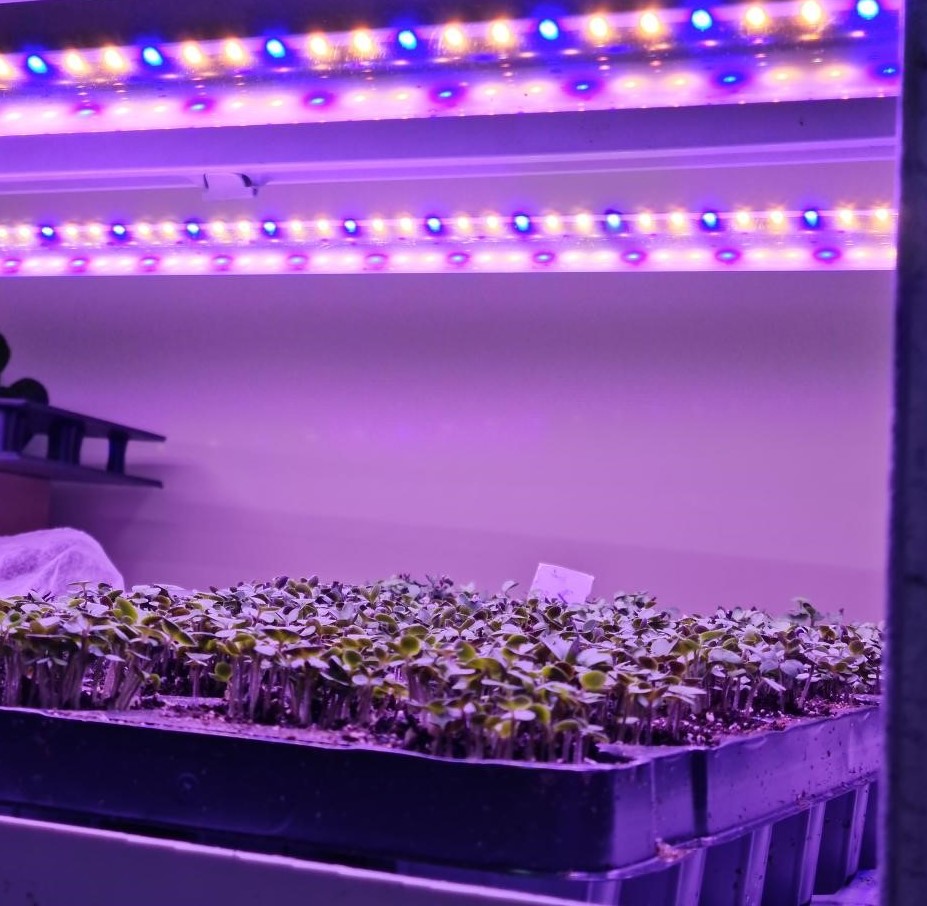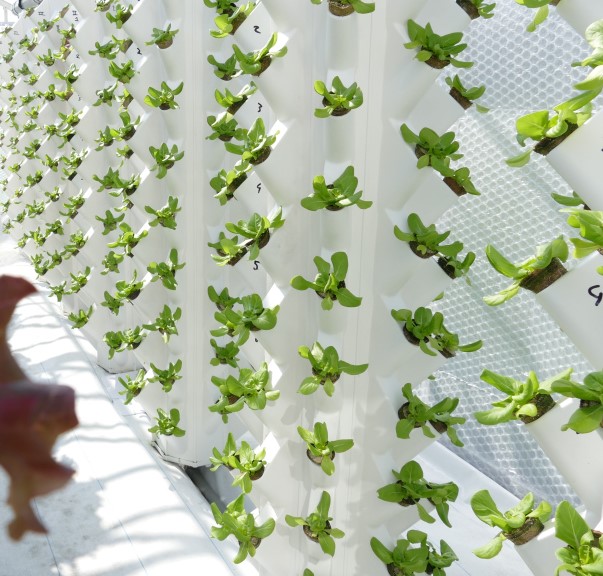Leading UAE-based smart and green facilities management (FM) company Farnek, in partnership with Dutch green-tech projects specialist developer Urban Ponics, has created a 240sqm vertical rooftop garden at Farnek’s brand new staff accommodation centre in Dubai South – Farnek Village.
Farnek arranged for a team of experts from Urban Ponics in the Netherlands to fly into Dubai last week, to set up the rooftop garden nursery and construct the 200sqm ‘shade house’, which provides a blend of shade and light to create suitable conditions for shade-loving plants to thrive.
Urban Ponics together with Farnek’s in-house engineering team, assembled the three-metre high, metal tube framework in less than two weeks. The completed structure is equipped with green shade netting, grow pods, lava buckets, misters, pumps, water tanks, irrigation and drainage pipes.
Markus Oberlin, CEO, Farnek, said: “The rooftop garden will now be able to produce over 3,000 leafy greens such as lettuce, coriander, kale and spinach, as well as tomatoes, cucumbers, eggplants, capsicums and chillis.

“The first harvest should be ready in around six weeks and will be used in our kitchens, promising to be tastier, more nutritious and dare I say, ‘greener’, than ordinary salad plants.”
The produce is being grown using internationally recognised, sustainable methods including the use of vertical farming columns for a “mistponic” application, which is by far, the most sustainable soil-less growing technique, as it uses up to 90% less water than the most efficient conventional hydroponic and aquaponic systems.
Ryan Mitchell, Workers Welfare Manager at Farnek, commented: “Moreover, we recycle the condensate water from the air handling units to provide irrigation (misting water), we even reuse the nutrients washed into the runoff irrigation water.
Inside the shade house there are 40 PODs each two metres high and given their cylindrical design, optimizing vertical space by yielding 80 plants. The 240 sqm area of rooftop, which is the same size as a tennis court, will yield the equivalent of a half-acre of cultivated land, so, a hundred times more efficient than conventional farming.
“That’s one of the main advantages of utilising vertical farming technologies,” added Mitchell. “It’s the massive increase in crop yield per square metre and looking longer term, smart urban farming like this can help to reduce the ‘food desert’ effect in many densely populated areas. In essence any flat rooftop in the UAE is a potential market garden, irrespective of our arid environment.”
The garden even has its own dedicated nursery, where seedlings are grown in reusable plastic trays, which are lined with biodegradable bags, made from recycled potato starch. They are nurtured over a couple of weeks before being transferred into a small outdoor nursery. Once their roots have strengthened, they are ready to be planted in the main shade house.
“We will be able to cut down on the amount of salad plants we normally have delivered reducing our carbon footprint. We can also improve the nutritional content of our daily meals which will improve the overall health and wellbeing of our staff,” added Mitchell.
Finally, food waste collected in the staff kitchens will be sent for onsite composting, which once decomposed, will provide a compost rich in plant nutrients and beneficial organisms. This will be fed into the nursery pots, thus closing the circular economy and starting the whole life cycle over again.
-Ends-
For more information, log on to www.farnek.com

